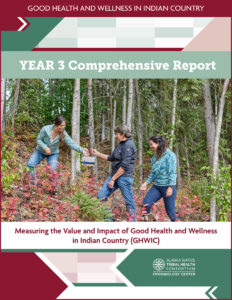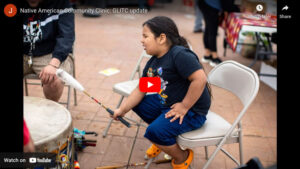Based on the Three Affiliated Tribes population data, there are less than 1,000 people living in the rural, remote, and isolated community in North Dakota on the Fort Berthold Indian Reservation. The community does not have a grocery store for its Tribal members, but does have a Convenience Store (C Store). Prior to the GHWIC Project’s involvement, the C Store offered snack items of sodas, chips, and candies. Potatoes, onions, and bananas were also offered in addition to the snack items.
The Food Access Survey was created by the GHWIC team to understand customers’ shopping experiences in the C Store and to identify potential ways to expand the availability of healthy food and beverage options in the community. The Food Access Survey was well received by the community and distributed in-person to individuals at community businesses and a community event. All community members that were asked to fill out the survey were receptive. The Food Access Survey was completed by 11% of the population in the community, providing a substantial sample size to interpret the community’s needs around healthy food access.
The survey results indicated respondents would be willing to purchase fresh fruits and vegetables if they were offered within the community. The survey results also found a small percentage of the respondents were dependent on the C Store for all their groceries. The survey also indicated which fresh fruits and vegetables the Tribal community members preferred.
The GHWIC Project staff presented the results of the survey to the Tribal Council Representative and the C Store Manager. Both of these individuals found the Food Access Survey results to be useful.
In response, the C Store Manager put forth considerable effort to offer healthier food options and is going the “extra miles.” The Manager drives several miles to a larger town to purchase non-perishable foods at a lower cost and then offers these foods at retail price in the C Store, offering the community more food options. Even with earnest attempts, some of the most requested fresh fruits did not have the anticipated demand, as the majority of the community members seem to prefer a wider selection of fruits offered in grocery stores.
The GHWIC Project has had an impact in expanding access to healthier foods in this community and demonstrates that healthy foods will be purchased if available. The healthy food options are placed prominently at the front of the store. Thanks to the C Store Manager and Tribal Council support, community members have increased access to healthier food options offered locally especially for individuals who are dependent on the C Store for groceries.

Jacobi Jarski
Diabetes Education Center
New Town, ND 58763
Phone: (701) 627-7931
Email: Jacobi.Jarski@ihs.gov



